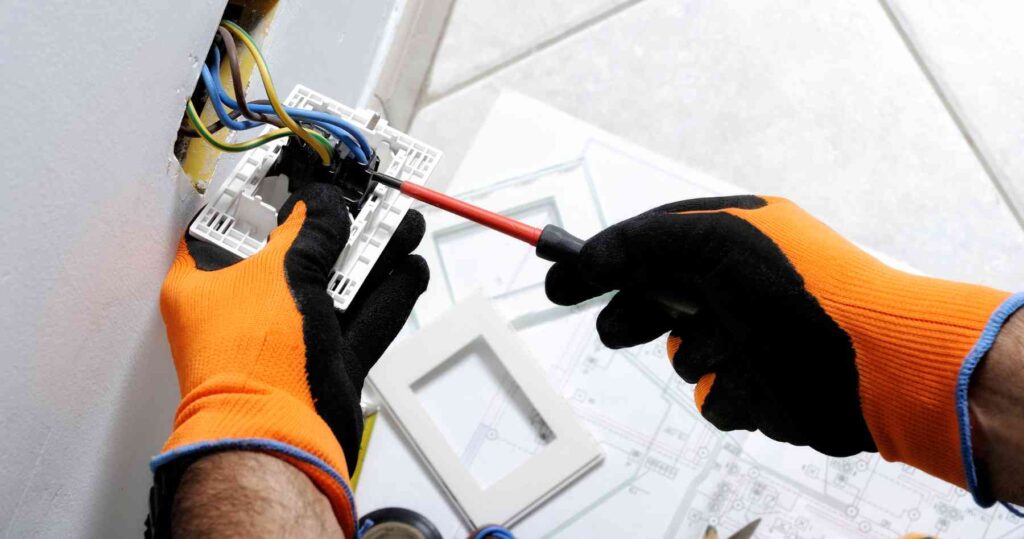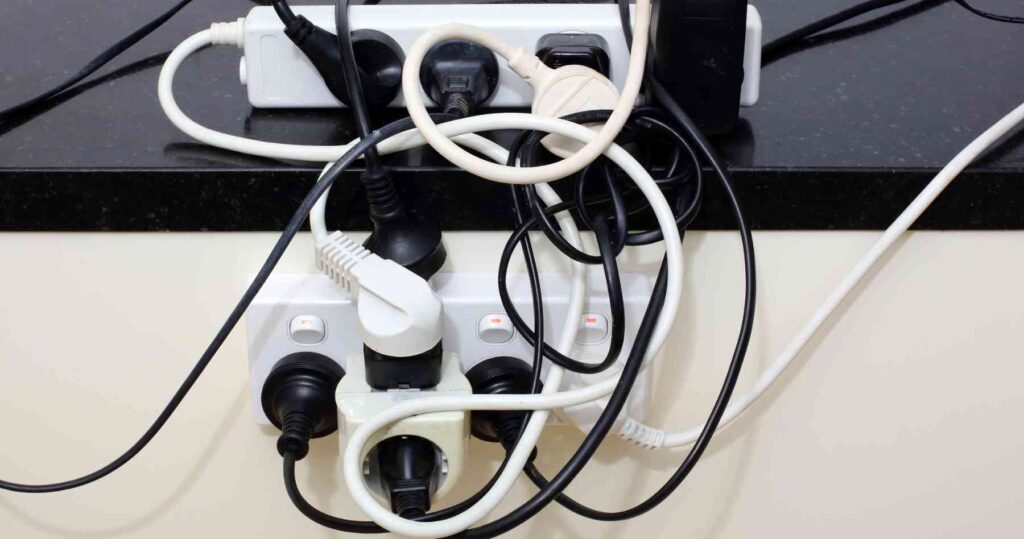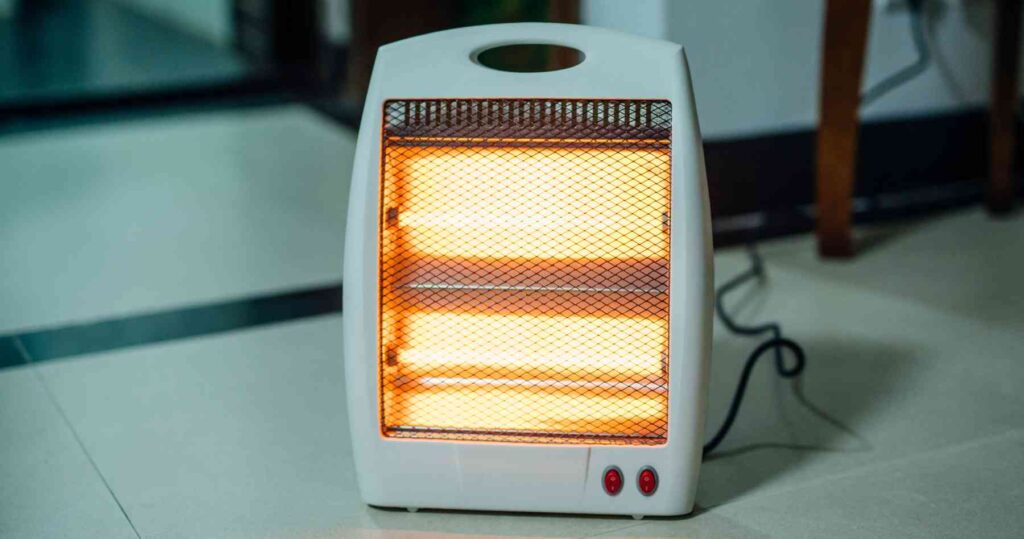Preventing Electrical Hazards in Your Home
Electrical hazards are a serious threat to the safety of your home, causing thousands of house fires each year. The good news is that many of these incidents can be prevented by taking some simple steps. Here are some tips to help you keep your home safe from electrical hazards.



Check Your Electrical Wiring
One of the most important things you can do to prevent electrical hazards is to have your electrical wiring checked. This is especially important if your home is older or if you have recently added new appliances or lighting fixtures. A professional electrician can check your wiring to ensure that it is up to code and that there are no potential hazards. If you have outdated wiring or if there are any other issues, the electrician can make the necessary repairs or upgrades.
Inspect Your Electrical Cords
Another important step in preventing electrical hazards is to inspect your electrical cords. Look for any signs of fraying, cracking, or other damage. If you notice any issues, replace the cord immediately. Also, be sure to keep cords away from water sources and avoid running them under carpets or rugs where they can be damaged.
Use Ground Fault Circuit Interrupters (GFCIs)
Ground fault circuit interrupters (GFCIs) are safety devices that can help prevent electrical hazards in your home. These devices monitor the flow of electricity in a circuit and can quickly shut off the power if they detect a problem. GFCIs are particularly important in areas of your home where water is present, such as the bathroom, kitchen, and basement.
Avoid Overloading Outlets
Another common cause of electrical hazards is overloading outlets. When too many devices are plugged into an outlet, it can overheat and cause a fire. To avoid this, spread out your devices among different outlets and avoid using extension cords or power strips with multiple devices. If you need more outlets, consider having an electrician install additional outlets in your home.
Be Careful with Portable Heaters
Portable heaters can be a great way to keep warm, but they can also pose a serious fire hazard. Make sure to place your heater on a flat, stable surface and keep it away from anything that could catch fire, such as curtains, bedding, or paper. Also, be sure to turn off your heater when you leave the room or go to bed.
Commercial Electrical Projects Require a High Level of Expertise
Dos and Don’ts to Avoid Electric Shocks at Home
Electric shocks can be a very dangerous and potentially life-threatening situation. It is important to be aware of the precautions needed to avoid electric shocks at home. Following certain dos and don’ts can help reduce the risk of electric shocks and keep you safe.
It is essential to check all electrical appliances regularly for any damage or faults. Make sure that all electrical cords are in good condition, with no frayed ends or exposed wires. Also, use surge protectors to protect your electronic equipment from power fluctuations. Additionally, never overload outlets as this can cause overheating and lead to an electric shock.
Finally, it is important to never attempt any repairs yourself unless you are qualified for it as this could lead to serious injury or death due to an electric shock.
Hear from our customers...
ExcellentBased on 7 reviews Trustindex verifies that the original source of the review is Google.
Trustindex verifies that the original source of the review is Google. Vanessa Johnson2021-05-27Great guys, always helpful and friendly. Have used their services for many years, always been satisfied with their service and pricing. Highly recommended!Trustindex verifies that the original source of the review is Google.
Vanessa Johnson2021-05-27Great guys, always helpful and friendly. Have used their services for many years, always been satisfied with their service and pricing. Highly recommended!Trustindex verifies that the original source of the review is Google. Melany Jane2021-04-28I'm really glad to have found Electrogem. Garth and Devin were professional, good-humoured, and worked neatly and hard - not even breaking for lunch. I really appreciated the jargon-free explanations of what was needed, and the great suggestions that I wouldn't have thought of (like replacing the old fluorescents in our stair lights with LEDs). They covered a large amount of work in a few hours and I found their pricing reasonable for the value.Trustindex verifies that the original source of the review is Google.
Melany Jane2021-04-28I'm really glad to have found Electrogem. Garth and Devin were professional, good-humoured, and worked neatly and hard - not even breaking for lunch. I really appreciated the jargon-free explanations of what was needed, and the great suggestions that I wouldn't have thought of (like replacing the old fluorescents in our stair lights with LEDs). They covered a large amount of work in a few hours and I found their pricing reasonable for the value.Trustindex verifies that the original source of the review is Google. Reggie Pfeiffer2020-07-20Great friendly professional service. Layne and Garth didn't think twice about going the extra mile and making sure my problems were attended to.Trustindex verifies that the original source of the review is Google.
Reggie Pfeiffer2020-07-20Great friendly professional service. Layne and Garth didn't think twice about going the extra mile and making sure my problems were attended to.Trustindex verifies that the original source of the review is Google. JOHN GAWLER2020-03-18I recently needed an Electrical Compliance Certificate for my property. A "highly recommended" company did an inspection and politely presented me with a "highly inflated" quote for remediation work. I was then referred to Electrogem. Layne Manly from Electrogem responded to my plea for help. Within a few days; Layne and his crew undertook a new inspection, completed the necessary remediation work and issued the necessary compliance certificate. The bill (including the new inspection fee) from Electrogem was substantially lower than the original quote. They are extremely professional, highly responsive and incredibly reliable. You will never go wrong by calling on Electrogem.Trustindex verifies that the original source of the review is Google.
JOHN GAWLER2020-03-18I recently needed an Electrical Compliance Certificate for my property. A "highly recommended" company did an inspection and politely presented me with a "highly inflated" quote for remediation work. I was then referred to Electrogem. Layne Manly from Electrogem responded to my plea for help. Within a few days; Layne and his crew undertook a new inspection, completed the necessary remediation work and issued the necessary compliance certificate. The bill (including the new inspection fee) from Electrogem was substantially lower than the original quote. They are extremely professional, highly responsive and incredibly reliable. You will never go wrong by calling on Electrogem.Trustindex verifies that the original source of the review is Google. Peter Holmes2019-05-23Electrogem have just installed a full solar PV system (panels, inverter, batteries) at my home. I found them to be very professional and the workmanship to be of the highest standard. Layne Manley is knowledgeable and approachable, and his staff (Garth and Michael) were meticulous in performing the installation. I can unreservedly recommend Electrogem .Trustindex verifies that the original source of the review is Google.
Peter Holmes2019-05-23Electrogem have just installed a full solar PV system (panels, inverter, batteries) at my home. I found them to be very professional and the workmanship to be of the highest standard. Layne Manley is knowledgeable and approachable, and his staff (Garth and Michael) were meticulous in performing the installation. I can unreservedly recommend Electrogem .Trustindex verifies that the original source of the review is Google. Sue Barnes2019-03-06When you have an electrical emergency it is great to know an electrician like Layne, as an estate agent it's important that we have a reliable support team, tx guysTrustindex verifies that the original source of the review is Google.
Sue Barnes2019-03-06When you have an electrical emergency it is great to know an electrician like Layne, as an estate agent it's important that we have a reliable support team, tx guysTrustindex verifies that the original source of the review is Google. Pieter Kotze2019-03-05Thank you Layne and team, great job, fast, clean and efficient. Highly recommended
Pieter Kotze2019-03-05Thank you Layne and team, great job, fast, clean and efficient. Highly recommended
Never Use a Damaged Extension Cord
An extension cord is a common household item that is used to extend the reach of electrical devices. However, even a slightly damaged extension cord can cause an electric shock or start a fire. For this reason, it is essential to check your extension cords regularly and replace them if they are damaged in any way. Signs of damage to look for include frayed or exposed wires, cracks in the insulation, and melted or burnt parts. If you notice any of these issues, do not use the cord and replace it as soon as possible.
Do Not Hide an Extension Cord under a Carpet
Hiding an extension cord under a carpet is a common practice, but it can be a serious fire hazard. Over time, the pressure from the carpet and furniture can cause the cord to become damaged, which can result in an electrical shock or fire. To avoid this, keep extension cords in plain sight and avoid covering them with carpets or furniture. If you need to hide an extension cord, consider using cord covers or a different type of protection.
Keep Extension Cords Out of Reach of Children
Young children are curious and often put things in their mouth, which can be a recipe for disaster when it comes to electrical cords. To prevent children from getting an electric shock, keep extension cords out of reach. If possible, place them behind furniture or use cord covers to protect them. It’s also important to educate children about the dangers of electrical cords and to supervise them whenever they are near electrical devices.
Never Use a Defective Electrical Device
Using a defective electrical device is extremely dangerous and can result in an electric shock or fire. If you notice that an electrical device is not working properly or if it has any visible signs of damage, do not use it. Instead, either throw it out or have it repaired by a professional. If you decide to repair it yourself, always unplug it first and make sure that you are familiar with electrical safety procedures.
Unplug Devices Before Repairing Them
Before you begin repairing an electrical device, it is important to unplug it first. If the device is still plugged in, one wrong move could result in an electric shock. If you are not comfortable with electricity or if you are unsure of how to repair the device, it is best to call on a professional for help. Only attempt to repair electrical devices if you have the necessary knowledge and skills to do so safely.
Pull on the Plug, Not on the Cable, to Unplug Devices
When you need to unplug an electrical device, it is important to pull on the plug and not on the cable. Pulling on the cable can cause it to become damaged, which can result in an electric shock or fire. To prevent damage to the cable, always grip the plug firmly and gently pull it out of the outlet. Make sure that you unplug devices by the plug and not by the cable to ensure the safety of your home.
By following these simple tips, you can help prevent electrical hazards in your home and keep your family safe. Regularly checking your electrical wiring, inspecting your electrical cords, using GFCIs, avoiding overloading outlets, and being careful with portable heaters are all important steps in preventing electrical hazards. If you have any concerns about the electrical safety of your home, don’t hesitate to contact a professional electrician for help.
